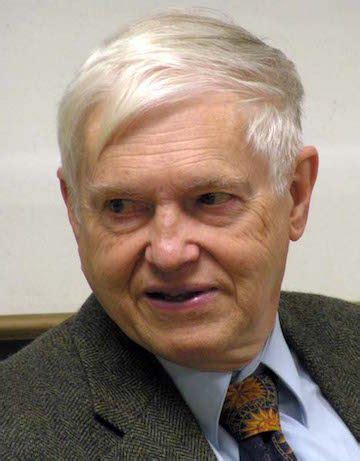A Quote by Stanley B. Prusiner
Neuroscience is by far the most exciting branch of science because the brain is the most fascinating object in the universe. Every human brain is different - the brain makes each human unique and defines who he or she is.
Related Quotes
One can truly say that the irresistible progress of natural science since the time of Galileo has made its first halt before the study of the higher parts of the brain, the organ of the most complicated relations of the animal to the external world. And it seems, and not without reason, that now is the really critical moment for natural science; for the brain, in its highest complexity-the human brain-which created and creates natural science, itself becomes the object of this science.
There are 100 billion neurons in the adult human brain, and each neuron makes something like 1,000 to 10,000 contacts with other neurons in the brain. Based on this, people have calculated that the number of permutations and combinations of brain activity exceeds the number of elementary particles in the universe.
The brain is the most complicated organ in the universe. We have learned a lot about other human organs. We know how the heart pumps and how the kidney does what it does. To a certain degree, we have read the letters of the human genome. But the brain has 100 billion neurons. Each one of those has about 10,000 connections.
Most of our brain cells are glial cells, once thought to be mere support cells, but now understood as having a critical role in brain function. Glial cells in the human brain are markedly different from glial cells in other brains, suggesting that they may be important in the evolution of brain function.
Structurally we should understand that one cannot think that the human brain is different from the brain of the other vertebrates. It is an important question, because we can investigate what is the difference between the brain of a mouse and ours, and of course the difference is enormous, in size and capacity.
When I look at the human brain I'm still in awe of it. Every single time you lift off the bone and open the durra and there it is - the human brain, the thing that gives a person a personality, that distinguishes each one of us, that there could be more than 6 billion of us here on this planet with brains that look the same, but each one being distinctly different because of what is going on in that thing. I'll never get over my awe of that.
By 2020, most home computers will have the computing power of a human brain. That doesn't mean that they are brains, but it means that in terms of raw processing, they can process bits as fast as a brain can. So the question is, how far behind that is the development of a machine that's as smart as we are?
The pace at which science has progressed has been too fast for human behaviour to adapt to it. As I said we are still apes. A part of our brain is still a paleo-brain and many of the reactions come from our fight or flight instinct. As long as this part of the brain can take over control the rational part of the brain (we will face these problems).



































